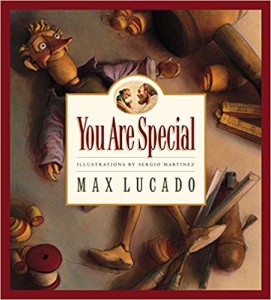Sue Bohlin considers several ways to develop a way of seeing our earthly life as part of the much bigger picture that extends into eternity.
What Does It Mean To Live With an Eternal Perspective?
Years ago, after spending his whole life on the mission field, a career missionary made his final trip home on a passenger ship. One of the other people on his sailing was a celebrity, and as the ship made its way into the harbor, all those on board beheld a huge throng of well wishers at the pier with signs and instruments to celebrate the famous person’s return.

The missionary stood at the railing, watching wistfully, knowing that not a soul was there for him. He said, “Lord, I’ve served You my whole life. Look at all the recognition and revelry for that famous person, and there’s nobody here for me. It hurts, Lord.”
He heard the still, small voice say, “You’re not home yet, son.”
I love this story that helps me keep in mind the big picture that includes the eternal, unseen realm, and the long picture that extends into the forever that awaits on the other side of death.
The apostle Paul had a firm grasp on what it means to live with an eternal perspective. We can especially see this in 2 Corinthians 4:16-18—
So we do not lose heart. Though our outer self is wasting away, our inner self is being renewed day by day. For this light momentary affliction is preparing for us an eternal weight of glory beyond all comparison, as we look not to the things that are seen but to the things that are unseen. For the things that are seen are transient, but the things that are unseen are eternal.
In these verses, Paul provides three aspects of an eternal perspective that kept him from losing heart, despite living with profound physical persecution and assault such as being hammered with stones, whipped by a cat-o’-nine-tails, beaten with rods, and shipwrecked. He knew what it was to go without sleep, food or drink, sometimes he was cold and naked. The man knew what it was to suffer! (2 Corinthians 11:23-29)
But Paul had a sort of spiritual periscope that allowed him to “see above” into the spirit realm while continuing to “live below” in this physical world. He saw the contrast between our bodies and our souls, how earthly affliction prepares us for glory, and the need to focus on the unseen and eternal rather than the seen and temporary.
Paul’s Eternal Perspective
The apostle Paul showed us in 2 Corinthians 4 that he understood what it was to live with an eternal perspective. He understood that our bodies can be growing older and weaker on the outside, while our spirits are growing stronger, brighter, and more mature on the inside. I get that; as a polio survivor who has also needed both my hips replaced, I am very aware that I keep getting weaker the longer I live in this compromised body. But I also know the beauty and glory of Jesus making me more and more like Himself, day by day, so by His grace I can keep growing in vitality and joy on the inside! I may have diminishing energy in my body, but my spiritual energy capacity keeps getting bigger!
Paul also understood that the hard parts of living in a fallen world, much less living with the pains and trials of persecution, are merely a “light and momentary affliction” compared to what’s waiting on the other side: an eternal weight of glory beyond all comparison. Even horrible pain on earth is still “light and momentary” compared to the infinite length and glory of eternity with Christ. We can see how the Lord Jesus modeled this understanding as He faced the cross, and Hebrews tells us that He “despised its shame” because He was valuing the glory of the joy set before Him (12:2)
And Paul understood that we can shift our focus from the visible and temporary things of this world, to the unseen and eternal things of the spirit realm. We have to work at seeing the unseen and eternal. We do that with the eyes of our hearts (Ephesians 1:18). We do that by training ourselves to view everything through the lens of God’s word.
I’ve been working at developing an eternal perspective for years. For me, it’s about connecting the dots between earthly things and heavenly things.
I look at earthly things and wonder, “How does this connect to the spirit realm? How does this connect to what is unseen and eternal?” For examples, look at my blog posts, such as Glorious Morning Glories [probe.org/glorious-morning-glories/], Back Infections and Heart Infections [probe.org/back-infections-and-heart-infections/], Cruise Ships, Roller Coasters and Attitudes [probe.org/cruise-ships-roller-coasters-and-attitudes/], and Blowing Past Greatness [probe.org/blowing-past-greatness/].
Jesus’ parables are the world’s best examples of using the physical to provide understanding of the eternal. He was always connecting the dots between the things He was surrounded by—different types of soil, lost coins and sheep and sons, a wedding banquet—and explaining how these things related to the Kingdom of Heaven.
One of the most important prayers we can ask is, “Lord, help me see Your hand at work”—and then intentionally looking for it. For years I have kept a “God Sightings” Journal where I recorded evidence of God intervening in my life and the lives of others I have seen. I love to ask my friends and mentees, “Do you any God Sightings to share?” to help them identify the hand of God in their lives.
An Eternal Perspective on Suffering
As we talk about living with an eternal perspective, let’s remember that we live in a permanent battle zone of spiritual warfare. We have an enemy who hates us because He hates God. He and his fellow demons continually attack us with lies and deceptions. Some are personal, but many of them constitute the cultural water we swim in.
When we forget that we live in a culture of anti-God, anti-truth, it’s like going out in our underwear, needlessly exposing ourselves. Living with an eternal perspective means staying vigilant, donning our spiritual armor (Ephesians 6:10-18) and using it to fight back against the lies of the enemy.
Spiritual warfare is HARD. It means suffering. Sometimes physical, most often mental—because spiritual warfare is waged on the battlefield of the mind. But the suffering of spiritual warfare is temporary, because the vast majority of the believer’s life will be spent in heaven where warfare of all kinds will be a distant memory.
But for right now, suffering is still part of life, and developing and maintaining an eternal perspective really helps us remind ourselves of the larger truth. Romans 8:18 says that “our present sufferings are not worth comparing with the glory that will be revealed in us.” Being faithful when we’re suffering means glory in the future.
My friend Holly has battled cancer three times on top of the horribleness of cystic fibrosis. She suffers literally every day of her life. Yet, with a beautiful, godly stubbornness, she reminds herself of what is true: “What if the worst thing happens? Oh wait, it can’t. The worst thing that can possibly happen to anyone is to die apart from Christ and spend eternity in torment. For me, to die means instant joy and relief in the arms of my Savior!”
Like Joni Eareckson Tada, my friend Chris has lived with quadriplegia for almost fifty years. What comes to mind when I think of Chris is two words: “sweet joy.” Because of his eternal perspective, Chris knows his suffering is temporary, and he chooses not to give into self-pity. People are drawn to him like honey because of how he radiates Jesus.
And then there’s me. I’ve lived with a disability my whole life. As a polio survivor, I have walked every step with a very noticeable limp. Living with an eternal perspective means that, by the grace of God, I know I will receive a beautiful, strong, perfectly healthy resurrection body in heaven. My polio days are limited, but my resurrection body days will be unlimited! Meanwhile, I get to see God use my disability for His glory and others’ good in ways I never would have imagined. It really is okay!
Remembering the Long View
Another aspect of living with an eternal perspective is focusing on the reality that our time on earth is short, especially compared to the never-ending life on the other side of death.
One of my favorite questions is to ask, “A hundred years from now, when you are face to face with Jesus in heaven, what do you want to be glad you chose today? Indulging your flesh and doing whatever you think will make you happy right now, or making choices that honor God and bless other people?”
Probably my favorite question remains an essential part of my eternal perspective: passing everything through the grid of the great question, “In the scope of eternity, what does this matter?” [probe.org/in-the-scope-of-eternity/]The frustrations of traffic? Not getting our way? A loved one who does not know Christ? The answer determines what is worth getting upset about, what we should just let go, and where we should be investing time in prayer.
We can remember the long view by pre-deciding now that we will use our earthly days fully, engaged in ministry, as long as God gives us breath.
Years ago, my view of living with an eternal perspective was shaped by the story of a lady who decided to start college in her 70s. When they asked her why she would do such a thing when her life was basically over, she said, “Oh no! It’s not over! I’m preparing for the next part of my life in heaven! The more equipped I can get on earth, the more ready I’ll be for what the Lord has for me on the other side!”
Another lady was homebound because she was so disabled. She got the word out that every afternoon, her home was open for anyone who needed prayer. Some days it was like there was a revolving door, so many coming and going! She had a vibrant ministry in the waning days of her life because she was determined to use her remaining earthly days fully, to the glory of God.
One of my friends is a TSA [Transportation Security Administration, part of the U.S. Government] agent at a major airport. She diligently reminds herself daily that every traveler who comes through the security line is infinitely valuable because they are made in the image of God, and Jesus died for them. She showers kindness on them because they are so important. One of her co-workers, for whom work is just a job where he punches a time clock, once told her, “In twelve months you’ll stop being nice to everyone.” We don’t think so. (Especially since she’s already had this job for several years.) She works at maintaining an eternal perspective, seeing the unseen.
In the time you have now, live well, to the glory of God. Keep reminding yourself that everything we do now has an eternal impact. Our choices, our behaviors, our words, ripple into eternity. Which is why we need to seek to do everything for the glory of God.
Eternal Perspective is What God Sees
As a mom of littles, Nicole Johnson was feeling sorry for herself when she met with a friend who had just returned from Europe. She writes,
“My friend turned to me with a beautifully wrapped package, and said, ‘I brought you this.’ It was a book on the great cathedrals of Europe. I wasn’t exactly sure why she’d given it to me until I read her inscription: ‘With admiration for the greatness of what you are building when no one sees.’
“In the days ahead I would read—no, devour—the book. And I would discover what would become for me, four life-changing truths, after which I could pattern my work:
“1) No one can say who built the great cathedrals—we have no
record of their names.
“2) These builders gave their whole lives for a work they would
never see finished.
“3) They made great sacrifices and expected no credit.
“4) The passion of their building was fueled by their faith that the eyes of God saw everything.
“There’s a story in the book about a rich man who came to visit the cathedral while it was being built, and he saw a workman carving a tiny bird on the inside of a beam. He was puzzled and asked the man, ‘Why are you spending so much time carving that bird into a beam that will be covered by the roof? No one will ever see it.’
“And the workman replied, ‘Because God sees it.’{1}
Living with an eternal perspective as we make choices and invest our time to glorify God is like building a cathedral that we won’t be able to see finished.
It means living with the long view in mind, aware that the things we can see, hear, and feel are temporary, but the spiritual realm is permanent.
An eternal perspective means that the things you do that no one sees but God—the unseen and eternal—they matter!
God tells us in Isaiah that our purpose in life is to glorify Him (43:7). Paul puts a point on this in 1 Corinthians 10:31: “Whether you eat or drink or whatever you do, do it all for the glory of God.”
And that’s the key to living with an eternal perspective.
Notes
1. thejoysofboys.com/monday-motivation-the-invisible-mom/
©2021 Probe Ministries
 When I taught that day, I held up an acorn from our front yard.
When I taught that day, I held up an acorn from our front yard.
 During an eclipse, the heavens declare the glory of God by allowing us to see things about the sun we wouldn’t be able to observe any other way, beautiful and gloriously resplendent. Just before totality we can see “Baily’s Beads.” Only seen during an eclipse, bright “beads” appear at the edge of the moon where the sun is shining through lunar valleys, a feature of the moon’s rugged landscape. This is followed by the “diamond ring” effect, where the brightness of the sun radiates as a thin band around the circumference of the moon, and the last moments of the sun’s visibility explode like a diamond made of pure light. After the minutes of totality, the diamond ring effect appears again on the opposite side of the moon as the first rays of the sun flare brilliantly. These sky-jewelry phenomena are so outside of mankind’s control that witnessing them stirs our spirits (even on YouTube!) with the truth of Romans 1:20—”God’s invisible qualities—his eternal power and divine nature—have been clearly seen, being understood from what has been made, so that people are without excuse.”
During an eclipse, the heavens declare the glory of God by allowing us to see things about the sun we wouldn’t be able to observe any other way, beautiful and gloriously resplendent. Just before totality we can see “Baily’s Beads.” Only seen during an eclipse, bright “beads” appear at the edge of the moon where the sun is shining through lunar valleys, a feature of the moon’s rugged landscape. This is followed by the “diamond ring” effect, where the brightness of the sun radiates as a thin band around the circumference of the moon, and the last moments of the sun’s visibility explode like a diamond made of pure light. After the minutes of totality, the diamond ring effect appears again on the opposite side of the moon as the first rays of the sun flare brilliantly. These sky-jewelry phenomena are so outside of mankind’s control that witnessing them stirs our spirits (even on YouTube!) with the truth of Romans 1:20—”God’s invisible qualities—his eternal power and divine nature—have been clearly seen, being understood from what has been made, so that people are without excuse.” A total solar eclipse offers so much more, though, than Baily’s Beads and the Diamond Ring. At the moment of totality, the pinkish arc of the sun’s chromosphere (the part of the sun’s atmosphere just above the surface) suddenly “turns on” as if an unseen hand flips a switch. I knew God is very fond of pink because of how He paints glorious sunrises and sunsets in Earth’s skies, but those fortunate enough to see a total eclipse can see how He radiates pinkness from the sun itself! The heavens declare the glory of God!
A total solar eclipse offers so much more, though, than Baily’s Beads and the Diamond Ring. At the moment of totality, the pinkish arc of the sun’s chromosphere (the part of the sun’s atmosphere just above the surface) suddenly “turns on” as if an unseen hand flips a switch. I knew God is very fond of pink because of how He paints glorious sunrises and sunsets in Earth’s skies, but those fortunate enough to see a total eclipse can see how He radiates pinkness from the sun itself! The heavens declare the glory of God! For the few minutes of totality, the naked eye can see the sun’s lovely corona (Latin for crown) streaming out from the sun. We can’t see the corona except during an eclipse because looking straight at the sun for even a few seconds causes eye damage, and because the sun’s ball of fire overwhelms the (visually) fragile corona. This is another way that an eclipse allows us to see how the heavens declare the glory of God.
For the few minutes of totality, the naked eye can see the sun’s lovely corona (Latin for crown) streaming out from the sun. We can’t see the corona except during an eclipse because looking straight at the sun for even a few seconds causes eye damage, and because the sun’s ball of fire overwhelms the (visually) fragile corona. This is another way that an eclipse allows us to see how the heavens declare the glory of God. The best explanation, I think, is found in my favorite children’s book, Max Lucado’s You Are Special.
The best explanation, I think, is found in my favorite children’s book, Max Lucado’s You Are Special.